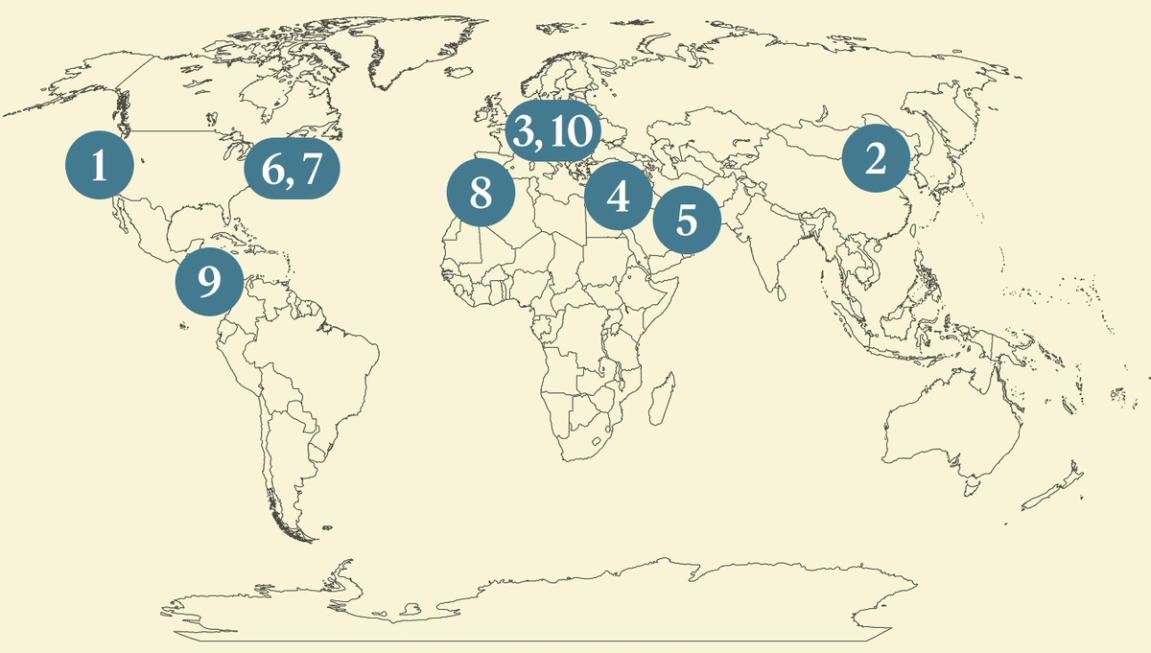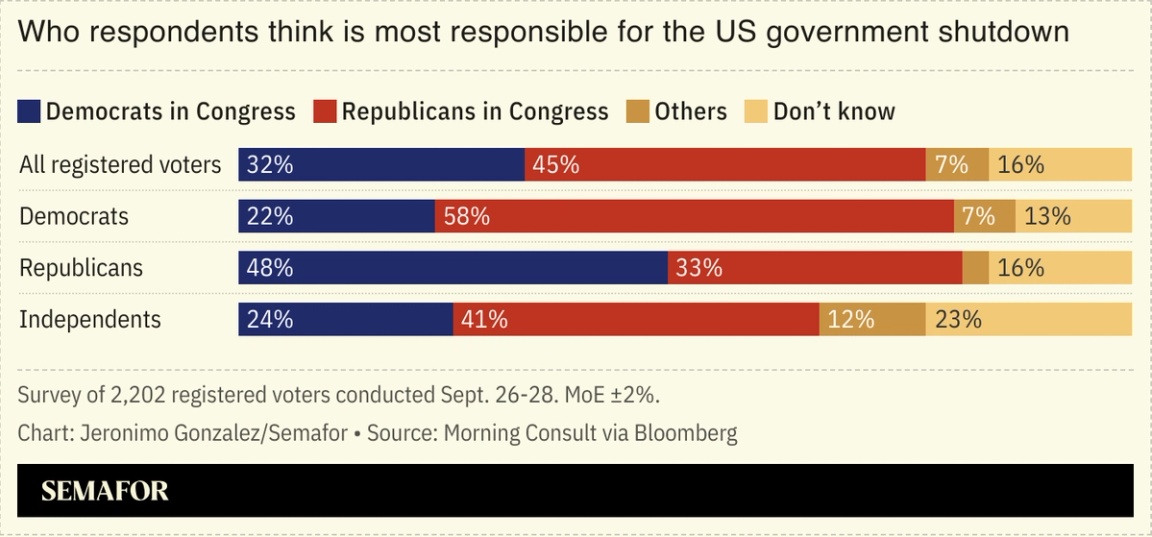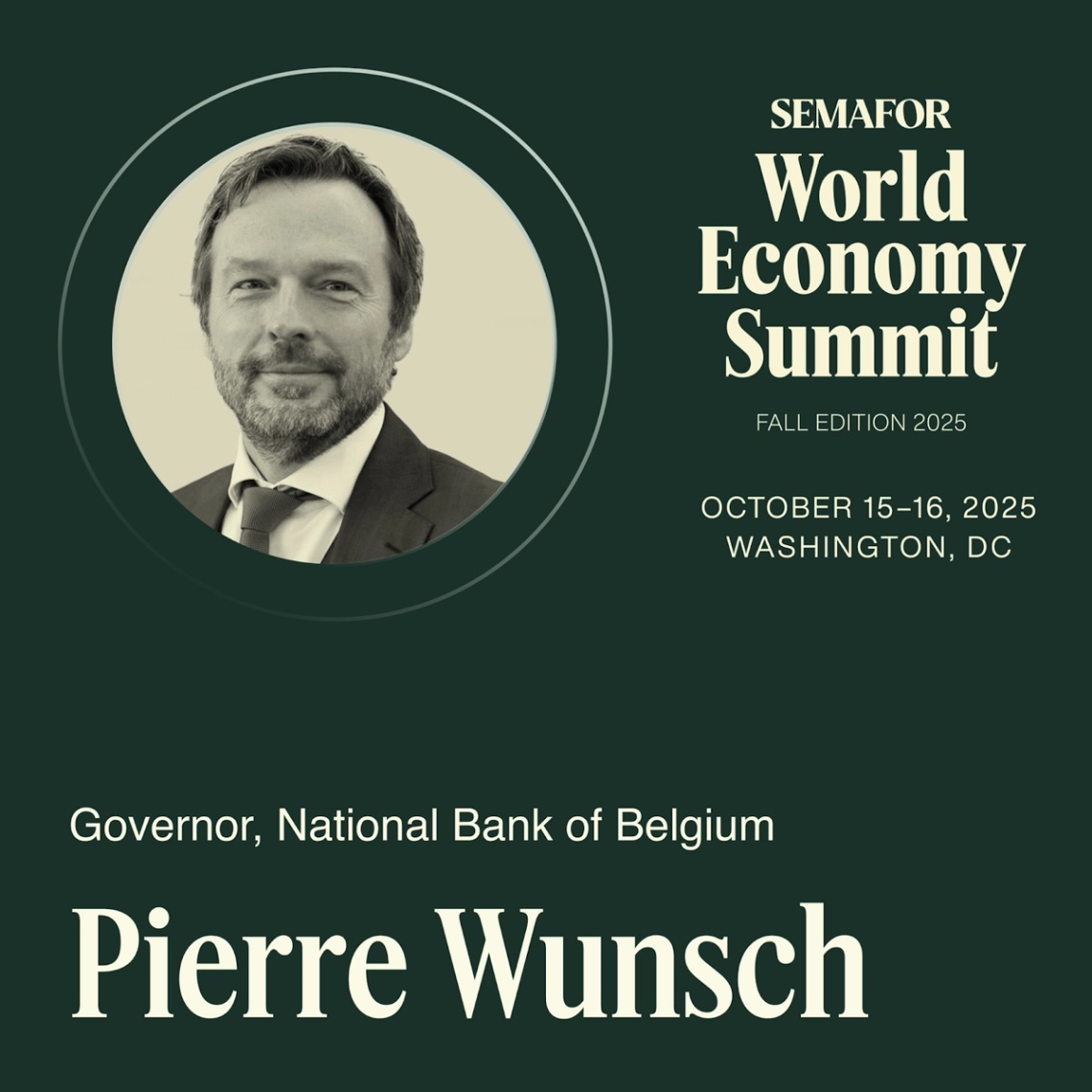| | OpenAI becomes the world’s most valuable private company, Republicans look to cut funding during the͏ ͏ ͏ ͏ ͏ ͏ |
| |  | Flagship |  |
| |
|
The World Today |  - OpenAI tops $500B
- China-Europe tech dispute
- Europe’s drone wall plans
- Israel halts Gaza flotilla
- US vows to protect Qatar
- GOP’s funding freeze
- Fed’s Cook stays, for now
- Morocco’s Gen Z protests
- LatAm remittances surge
- Vaccines’ record year
 Oktoberfest’s millions, and an exhibition of John le Carré’s letters. |
|
AI’s 500-billion-dollar threshold |
|
China-Europe telecoms face-off |
 TT News Agency/Mikaela Landestrom via Reuters TT News Agency/Mikaela Landestrom via ReutersChina is reportedly limiting the use of European equipment in its telecoms infrastructure, pointing to deepening technological autarky between Beijing and the West. Chinese state-controlled mobile operators, utilities, and other major firms are subjecting Ericsson of Sweden and Finland’s Nokia to months-long national security investigations, the results of which are sometimes not made public, according to the Financial Times. It puts the European firms at a potential disadvantage compared to Chinese competitors, who are not similarly reviewed. The EU, for its part, is stepping up its scrutiny of China’s Huawei and ZTE, with its executive arm pledging to avoid using mobile networks built with the companies’ equipment, while Spain has canceled a telecoms contract over the provider’s use of Huawei technology. |
|
 Piroschka van de Wouw/Reuters Piroschka van de Wouw/ReutersEuropean leaders backed a plan to build a so-called drone wall to bolster the continent’s defenses, aiming to send a clear message to Moscow after multiple Russian incursions into NATO airspace. The continent is scrambling to build the necessary capacities to defend against drones, highlighting not only its lagging technology but also how rapidly warfare has shifted to the use of unmanned aircraft. According to NATO, the Russian army is now capable of making drones for a few thousand dollars that Europe can only shoot down with missiles that cost millions of dollars apiece. Moscow’s ongoing hybrid war makes a drone wall necessary, Finland’s prime minister argued: “Russia will continue and we have to be ready.” |
|
Israel intercepts Gaza aid flotilla |
 Handout via Reuters Handout via ReutersIsraeli naval ships intercepted a flotilla attempting to deliver aid to Gaza and detained several activists, including Greta Thunberg. The “Global Sumud Flotilla” of more than 40 vessels set sail in September, intending to breach Israel’s naval blockade of the enclave, where the UN says a humanitarian catastrophe is underway. Israel said several vessels were taken to port, citing what it called a violation of a “lawful naval blockade,” but flotilla organizers said their boats had been illegally boarded and targeted with water cannon and drones. The boats have become an international cause célèbre: They were escorted part-way by Italian and Spanish naval ships, and their interception has been met by protests in several European countries. |
|
 Donald Trump and Qatar’s Emir Tamim bin Hamad Al Thani. Brian Snyder/Reuters Donald Trump and Qatar’s Emir Tamim bin Hamad Al Thani. Brian Snyder/ReutersUS President Donald Trump signed a NATO-like security guarantee for Qatar, part of efforts to reassure the emirate after an Israeli strike on Hamas leaders in Doha last month. The executive order pledges to take all measures, including US military support, to defend the Gulf state, though its legal and practical value is in question. Such agreements have historically required the approval of the US Senate, and the announcement was met with criticism from some of Trump’s conservative supporters. The move was ostensibly made to reassure Washington’s Gulf allies following the Israeli strike — Saudi Arabia has already reached a mutual-defense pact with nuclear-armed Pakistan — but Politico nevertheless called it a “shocking departure from the administration’s America First approach.” |
|
Democrats under pressure in shutdown |
 US Republicans are moving to cut funding to Democratic constituencies while the federal government is shut down. The White House on Wednesday said it would freeze $18 billion in infrastructure funds for New York City, while another $8 billion for Energy Department climate projects in Democratic states would be canceled. The moves are intended to put pressure on the party, but House Minority Leader Hakeem Jeffries told the White House’s budget chief to “get lost,” suggesting neither side is ready to blink in the dispute. Some Republicans worry the White House is moving too fast, Semafor’s US politics team reported, using the shutdown as a pretext for DOGE-style cuts which one senator said could “squander” Republicans’ “moral high ground.” |
|
Fed’s Cook keeps job, for now |
 Lisa Cook. Shannon Stapleton/Reuters Lisa Cook. Shannon Stapleton/ReutersThe US Supreme Court ruled that Federal Reserve governor Lisa Cook can stay in place for now, temporarily derailing White House efforts to remove her. The Fed is traditionally independent of the executive branch, but US President Donald Trump has attempted to remove Cook for alleged mortgage fraud, pressured Fed Chair Jerome Powell to reduce interest rates, and tried to put political allies on the board. The Supreme Court has previously allowed Trump to fire leaders of other government agencies, but has generally signaled that the Fed is uniquely independent; the emergency ruling over Cook, permitting her to stay in office until January when oral arguments can be heard, maintains that position. |
|
 Pierre Wunsch, the governor of the National Bank of Belgium, will join the stage at the Fall Edition of Semafor’s World Economy Summit. Hosted in the Gallup Great Hall and spanning eight sessions over two days, Semafor editors will conduct on-the-record interviews on the state of global growth and finance, AI advancements, powering global energy needs, and the forces reshaping the world economy. Each session brings together leaders who are directly shaping the global economy, with programming powered by Semafor’s world-class editorial and executive leadership. Oct. 15 & 16, 2025 | Washington, DC | Request Invitation |
|
Rare protests rock Morocco |
 Ahmed El Jechtimi/Reuters Ahmed El Jechtimi/ReutersAt least two people died and dozens were arrested in Morocco, the latest site of Gen Z protests that have rocked countries worldwide. Though the North African country has for years avoided mass demonstrations owing to the government’s ironfisted rule, protests have erupted in recent days over what demonstrators say is misplaced spending. Rabat has prioritized readying the country to host matches for the 2030 Men’s soccer World Cup at the expense of greater investment in social services, demonstrators say. “The right to health, education and a dignified life is not an empty slogan,” the protest’s organizers said. The demonstrations mirror recent Gen Z-led protests in Nepal and Madagascar that have forced rulers to resign. |
|
|